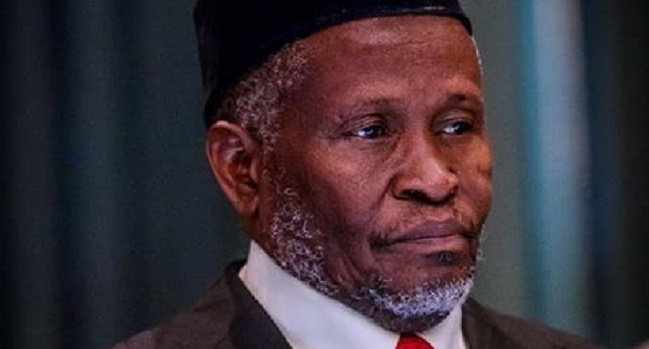Politics
NJC reveals new guidelines for electoral cases

The National Judicial Council (NJC) has issued “Policy Directions” to heads of courts around the country on political and election-related disputes.
Soji Oye, a spokesman for the NJC, revealed this to the press on Wednesday.
The NJC stated that it was part of a determined effort to reduce the issuing of conflicting orders and judgements capable of disturbing the ongoing electioneering process to the bare minimum.
The conference where the policy instructions were established was presided over by Nigeria’s Chief Justice, Dr Ibrahim Tanko Muhammad.
Heads of Courts will henceforth be held accountable for flaws in their areas of authority, according to the new directive.
The policy direction was formulated at its 98th meeting on May 10 and 11 under the Chairmanship of the CJN, according to the statement.
The statement reads, “Pursuant to the powers vested in the National Judicial Council by the Constitution of the Federal Republic of Nigeria, Schedule III, Part I, 21 (i), a new policy direction is hereby issued.
“These Policy Directions shall apply to all suits filed in any court in Nigeria wherein the parties include Independent National Electoral Commission, any political party or its officers, any other person, natural or legal, suing or sued for a declaration in relation to any action taken or to compel or restrain any action or omission with respect to the affairs of a political party or any election into a public office.
“These Directions seek to: prevent the multiplicity of litigations at different courts of coordinate jurisdiction across the nation, resulting in conflicting orders on the same issues and facts;
“Recognise that courts need to embrace prudential limitations on their powers with a view to curtailing the incidences of unscrupulous forum shopping disrupting the administration of justice and the democratic process; and
“Acknowledge that the circumstances necessitate further administrative measures and procedures to complement and support the judicial process.
“All suits to which these Policy Directions apply shall be filed, received, or entertained only at the High Court of the Federal Capital Territory in so far as the relief sought, or potential consequential order (s) or declaration (s) may restrain or compel persons or actions beyond the territorial jurisdiction of any one State;
“Where such suits are within the exclusive jurisdiction of the Federal High Court, they shall be filed or received at Abuja and assigned by the Chief Judge of the Court;
“All such suits wherein the cause of action arose in a State and the relief seeks a declaration or to compel or restrain person (s), natural or legal, within that State’s territory, with no consequence outside the State, shall be filed, received, or heard only in that State;
“All Heads of Court shall assign cases or constitute panels with a view to forestalling the incidences of conflicting judgements and rulings;
“Once facts or issues have been ruled upon, no other Court or Panel of Coordinate Jurisdiction shall be assigned or entertain Suits on the same subject matter and parties shall comply or proceed on appeal to the appropriate higher Court;
“Rules of Court shall require sufficient notice and publicity of actions that potentially impact other cases;
“Rules of Court shall stipulate solemn disclosure duties on litigants filing actions that may impact other actions.
Read also: Reps to appeal court ruling on Section 84, petition NJC
“Heads of Court shall exercise their rule making and administrative powers to give effect to these Policy Directions.
“These directions shall take effect from the 11 May 2022”.
According to the announcement, a Cross Jurisdiction Litigation Panel will be formed to provide guidance on proper litigation for cross-jurisdictional cases.
The NJC also stated that after reviewing the list of candidates given by its Interview Committee, it recommended 49 candidates for appointment as Heads of Courts and other Judicial Officers in Nigeria.
Similarly, NJC received six retirement notifications and one notification of termination.
Join the conversation
Support Ripples Nigeria, hold up solutions journalism
Balanced, fearless journalism driven by data comes at huge financial costs.
As a media platform, we hold leadership accountable and will not trade the right to press freedom and free speech for a piece of cake.
If you like what we do, and are ready to uphold solutions journalism, kindly donate to the Ripples Nigeria cause.
Your support would help to ensure that citizens and institutions continue to have free access to credible and reliable information for societal development.




















